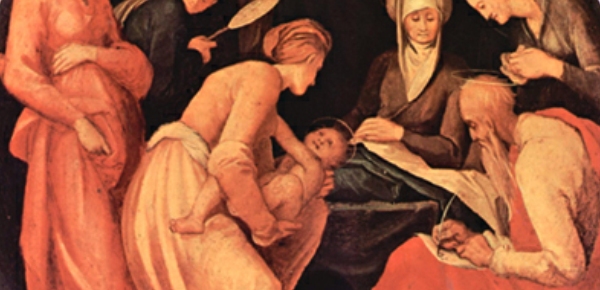Most of my ideas on the front end seem like good ones, but in retrospect are often not so hot. I’m not sure how I’m going to get through Luke 4, much less Luke 24. So, here’s the deal, expect average content throughout… less than average for about a month… and then possibly slightly above average towards the end of the summer. Now, with expectations set fairly low, let’s forge ahead.

Two characters, Zechariah and Elizabeth, are introduced in such a way as to evoke “echoes” of some of the birth miracles of the Old Testament. Abram and Sarai, Jacob and Rachel, Samson to name a few. Aged and childless, they conducted their lives in such a way that they were called “righteous in the sight of God.” They are portrayed as ordinary Jewish people going about their lives. Ordinary people through whom God is going to doing an extraordinary thing. In some ways, this anticipates a recurring theme through Luke (and Acts, and the gospels, and the New Testament in general) that God uses regular people for his purposes. And since their story precedes Jesus’ own miraculous conception, it is a foreshadowing of sorts that God is on the move.
Verse 5 also makes mention of Herod. The Herod’s of the New Testament can be very confusing. This one is not the same one that is encountered later in the gospels. And that’s not the same one that is encountered in Acts. The Herod in verse 5 is the ancient equivalent of George Foreman. Everyone in the whole family is more or less named Herod.
Ok, we’re about done here, but a word about priests. Zechariah would have had normal priestly responsibilities in attending to temple worship. And as Providence would have it, while he is going about his daily priestly routine, he is chosen by lot to be the one who enters the holy place to offer incense. This isn’t to be confused with the Holy of Holies. That would be where the high priest alone could go and only once a year. Still even to be chosen to do what Zechariah was appointed to do that day would have been seen as a special honor.
Like I’ve said, I think the important question to ask is “What did Luke intend to communicate in this passage?” I also think the question, “What did God intend to communicate?” is an important one as well. It could be more than Luke had in mind, but certainly not less.
As best, I can tell Luke is really still setting the stage for what is to come. By highlighting God’s work on behalf of Zechariah and Elizabeth, I think the idea is that more and bigger is to come.
